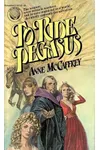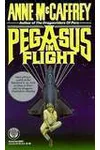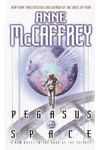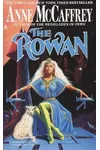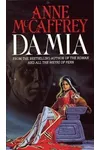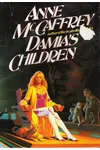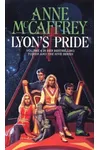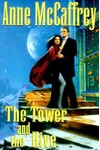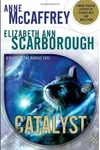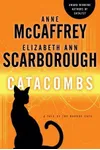Step into the mesmerizing world of The Talents, where psychic powers shape humanity’s future among the stars! Anne McCaffrey’s groundbreaking science fiction series invites readers to explore a universe where telepaths, telekinetics, and precogs navigate a society that both fears and needs their extraordinary gifts. With rich storytelling and vibrant characters, The Talents blends adventure, intrigue, and human evolution in a way that captivates fans of speculative fiction.
Unlike her famous Dragonriders of Pern, McCaffrey’s The Talents series grounds itself in a near-future Earth, tackling themes of power, prejudice, and progress. Ready to discover a saga that’s as thought-provoking as it is thrilling? Let’s dive into its origins, stories, and lasting charm!
How The Talents Began
Anne McCaffrey, a trailblazing sci-fi author and the first woman to win both Hugo and Nebula Awards, launched The Talents with To Ride Pegasus in 1973. Inspired by her fascination with human potential and psychic phenomena, McCaffrey envisioned a world where mental abilities could revolutionize society. The series, part of the broader Talents Universe, grew from short stories into a trilogy, with later books connecting to her Tower and Hive series. Her move to Ireland in 1970, where she crafted her iconic works, fueled her creative freedom to explore these bold ideas.
McCaffrey’s knack for blending hard science with fantastical elements set The Talents apart. She consulted experts to ground her psychic concepts in plausible science, making the series a unique bridge between fantasy and sci-fi. This vision hooked readers, earning praise for its originality and emotional depth.
The Heart of The Talents
The Talents series, also called the Pegasus trilogy, comprises three core books: To Ride Pegasus (1973), Pegasus in Flight (1990), and Pegasus in Space (2000). To Ride Pegasus introduces Henry Darrow, who founds the Parapsychic Center to train Talents—people with psychic gifts like telepathy and telekinesis. The story, a collection of interconnected tales, explores their struggle for acceptance in a suspicious world. Pegasus in Flight follows Rhyssa Owen, a telepath managing the Center, as she recruits new Talents to support space colonization amid Earth’s overpopulation crisis. Pegasus in Space centers on Peter Reidinger, a paralyzed teen whose telekinetic powers help humanity reach the stars, thwarting sabotage on the Padrugoi Space Station.
The series shines through its themes of human evolution, societal prejudice, and the ethical use of power. McCaffrey’s characters, from the visionary Darrow to the resilient Reidinger, are complex and relatable, facing personal and political challenges. Set against a backdrop of space exploration and urban dystopia, the stories blend gritty realism with hopeful optimism, appealing to fans of authors like David Eddings and Brandon Sanderson. The narrative’s focus on community and collaboration makes it a cozy yet thrilling read.
Why The Talents Resonates
The Talents series left a lasting mark on science fiction by exploring psychic abilities as both a gift and a burden. Its influence is evident in how it paved the way for character-driven sci-fi, inspiring works that delve into the human psyche. Fans on platforms like Goodreads praise its engaging world-building and uplifting tone, with reviews calling it “addictive” and “inspiring.” McCaffrey’s ability to weave science and empathy earned her a devoted following, cementing her as a genre icon.
Decades later, The Talents remains relevant for its exploration of societal acceptance and technological progress. Its vision of psychic powers aiding space exploration feels prescient, resonating with today’s interest in human potential and interstellar travel. For readers seeking a blend of heart and imagination, the series is a timeless gem.
- First Book: To Ride Pegasus (1973)
- Total Books: 3 in the Pegasus trilogy, part of the broader Talents Universe
- Awards: McCaffrey won Hugo and Nebula Awards, though not specifically for The Talents
- Genre: Science fiction, space opera
Grab To Ride Pegasus and soar into The Talents’ captivating world of psychic adventure and cosmic dreams! Whether you’re a sci-fi veteran or a curious newcomer, McCaffrey’s universe awaits.
